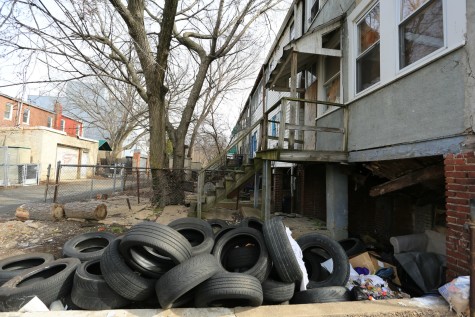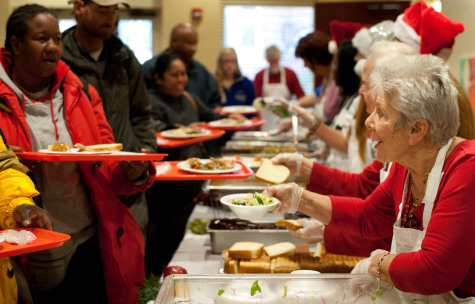Domestic Violence: Not a black and white issue
“If he even raises a hand at you, leave.”
Every young woman is familiar with this mantra. But as obvious as it sounds, statistics show that it’s much easier said than done. According to the National Domestic Violence Hotline, abused women will leave their partners nearly seven times before they leave permanently. Despite this statistic and many others that paint a very vivid portrait of domestic violence, people have publicly attacked Janay Rice after her recent defense of her husband, former Baltimore Ravens running back Ray Rice, on Instagram. What the public lacks is a basic understanding of abuse, and if society were more educated on this issue, the treatment of Janay Rice would be entirely different.
The most alarming signal of society’s complete ignorance regarding domestic violence is reflected in the NFL’s inquiry into the elevator incident during which Janay Rice was knocked unconscious by her then-fiancé. NFL Commissioner Roger Goodell called a meeting after learning about the incident to question her. The event was hardly private; Rice was surrounded by several men, including her husband. She proceeded to blame herself for the incident claiming that she had fallen during the fight, thus knocking herself out.
The inclusion of the perpetrator in this meeting is already appalling enough, but what’s even more shocking is that Goodell accepted this explanation and gave Ray Rice a slap on the wrist with a meager two-game suspension. Anyone who understands domestic violence even to a basic degree would know better than to place a victim in the same room as her abuser and expect her to recount what happened in an honest way.
In response to Janay Rice’s angry Instagram post in which she defended her husband, people have questioned her judgement asking why she married him after the incident and why she took to the social media site to stand up for the very man who punched her in the face. But we can’t criticize women who choose to stay with their abusers, although leaving them is what we believe to be common sense. In situations of domestic abuse, all common sense flies out the window. Battered women’s loved ones, people they trusted deeply, are the ones hurting them in every manner possible through physical abuse and manipulation. As the popular hashtag “#WhyIStayed” has shown, most women in abusive relationships are constrained by the fear of stigmatization, humiliation, and the inkling of hope that their partners will change.
Not only must Janay Rice be experiencing denial, but she’s probably also faced with the dilemma of her husband’s indefinite unemployment and the risk of leaving him, which could both endanger her and throw a wrench into their son’s life. Her decision to marry and stand by the man who physically assaulted her may come across as a bad example to young women everywhere, but society needs to stop portraying both women and men in situations of domestic violence as foolish or weak.
Instead of making their actions examples of what not to do, we need to teach victims to seek help. By entitling ourselves to these uninformed opinions on a complicated issue, we are creating a hostile, victim-blaming environment where more and more people will never feel safe enough to take the steps necessary to escape these toxic relationships.




